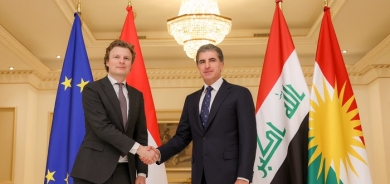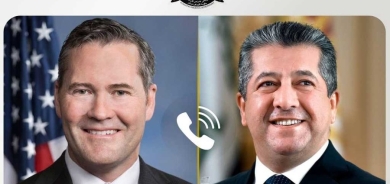Kurdistan Region President and Judiciary Address Legal Impasse Ahead of Parliamentary Elections

In a critical meeting held on Tuesday, Kurdistan Region President Nechirvan Barzani engaged in discussions with the president and members of the Region’s Court of Cassation, alongside the Kurdistan Regional Government’s justice minister. The focal point of the dialogue was the intricate legal challenges surrounding the impending parliamentary election, as a ruling from Iraq’s Federal Supreme Court remains pending, dictating the conduct of the polls.
The meeting delved into the intricacies of two complaints lodged with the Federal Supreme Court, questioning the constitutionality of certain provisions within the Region’s election law. Of particular concern were the delays in the Federal Court's decision, which has been postponed on ten occasions, significantly impacting the electoral timeline.
Originally slated for October 2022, Kurdistan Region’s parliamentary polls were deferred to November 2023 due to internal political discord over the election law. Following an Iraqi court’s ruling against the extension of the Kurdistan parliament, the elections were rescheduled to February 25, 2024, under the supervision of the Iraqi electoral commission. However, the Independent High Electoral Commission (IHEC) recently announced further postponements, with expectations pointing towards a rescheduling for late May, contingent upon the pending ruling by the federal court.
At the heart of the legal dispute are two lawsuits, jointly treated as a single case by the Federal Supreme Court, challenging various provisions of the Kurdish election law, notably Article 36 concerning minority representation. This article reserves 11 seats in the legislature for minorities, a system which has been contested by some political factions, particularly the Kurdistan Patriotic Union (PUK), alleging manipulation by the ruling Kurdistan Democratic Party (KDP).
While the Iraqi federal court has repeatedly delayed its ruling, citing the complexity of the case, former Kurdistan Parliament Speaker Rewaz Fayaq revealed last year that most disputes concerning delayed elections had been resolved, barring disagreements over minority representation.
Criticism from both domestic and international quarters has mounted against Kurdistan Region’s authorities for the recurrent delays in holding elections. Jeanine Hennis-Plasschaert, representing the United Nations Assistance Mission for Iraq (UNAMI), emphasized the urgency of adhering to the electoral timeline, stressing the significance of a functioning democratic process in the region.
In response to the growing pressure, President Barzani affirmed his commitment to upholding constitutional and legal procedures to ensure the timely conduct of the parliamentary elections. Nevertheless, the ongoing legal impasse underscores the challenges facing Kurdistan Region’s electoral landscape, with broader implications for stability within Iraq.
The United Nations' repeated warnings underscore the imperative for all stakeholders to prioritize the electoral process and mitigate internal political tensions, as Kurdistan Region navigates through this critical juncture in its democratic journey.













